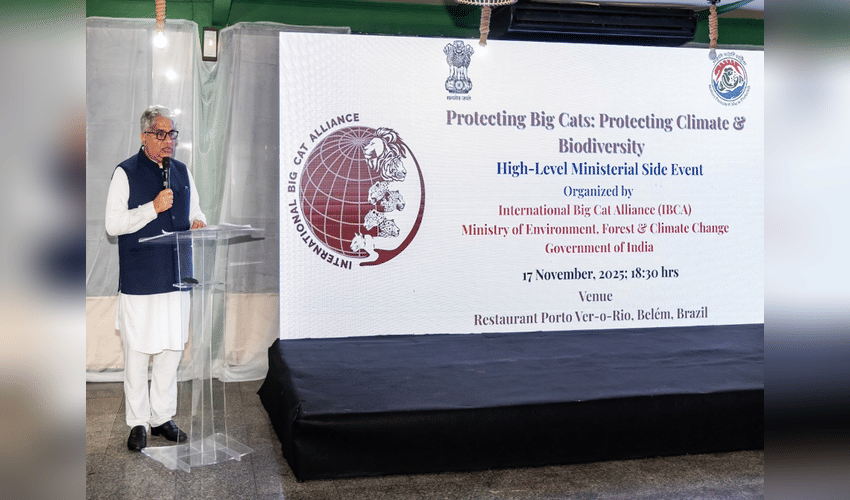World
India's Environment Minister presented the country's statement at the UNFCCC CoP30 held in Brazil.

Crown Prince Mohammed bin Salman made his first visit to the White House since the killing of Saudi critic Jamal Khashoggi, a move aimed at restoring his global standing and demonstrating to President Donald Trump that supporting his decisive leadership was a worthwhile risk. Tuesday’s meeting between Trump and Saudi Arabia’s de facto ruler, widely known as MbS, highlights a relationship founded on strategic interests that has endured even as the international outrage over Khashoggi’s 2018 murder gradually recedes.
Seven years on, MbS presents himself as a mediator, working to repair ties with Iran, push for a ceasefire in Gaza, and reintegrate Syria into the Arab fold — a remarkable shift for a leader once criticized for his reckless involvement in Yemen’s war. Both reformist and autocratic, he has emerged as one of the most transformative and audacious figures in modern Saudi history, steering the kingdom through major social and political changes.
Domestically, the 40-year-old prince has launched a social revolution unprecedented since the era of his grandfather, King Abdulaziz, who unified the kingdom and established its longstanding alliance with the United States. MbS has curtailed the religious police, limited clerical influence, and dismantled decades of strict social codes. Women now drive, work, and freely interact with men, a sharp departure from past restrictions. Riyadh has embraced pop culture, fashion shows, and international celebrities, with stars like Jennifer Lopez and Camila Cabello performing in the capital alongside high-profile fashion events, signaling a rapid push toward modernization.
Yet, the crown prince’s liberalization at home comes alongside a tightening grip on political power. Dissent has been suppressed, critics silenced, and rival power centers dismantled, sending a clear message that reform advances only on MbS’s terms and loyalty to him is non-negotiable. Internationally, he has weathered the fallout from Khashoggi’s murder, which U.S. intelligence linked to him. While he denied ordering the killing, he accepted responsibility as Saudi Arabia’s effective ruler. Despite prior calls to isolate the kingdom, including from then-presidential candidate Joe Biden, U.S. strategic interests in energy, defense, and technology have kept relations intact. Trump’s return to the White House in 2025 revived a warm, transactional relationship, with billions in Saudi investment pledges and collaboration on defense initiatives.
Analysts describe his White House visit as a “pre-coronation” moment, underscoring the inevitability of his future ascension. Even amid past crises, such as the 9/11 attacks, the U.S.-Saudi relationship remains anchored in shared energy, defense, and now artificial intelligence interests. MbS’s presence dominates Saudi public life, from malls and billboards to state media, portraying every initiative as a hallmark of his vision, though debate over the feasibility of his reforms remains muted.
MbS has also positioned Saudi Arabia prominently on the global sports stage, merging the PIF-backed LIV Golf circuit with North America’s PGA Tour, attracting top football talent like Cristiano Ronaldo, and securing hosting rights for the 2029 Asian Winter Games and the 2034 FIFA World Cup. With these moves, he casts himself as a leader shaping both the kingdom’s present and its future, balancing bold reforms with firm political control.



